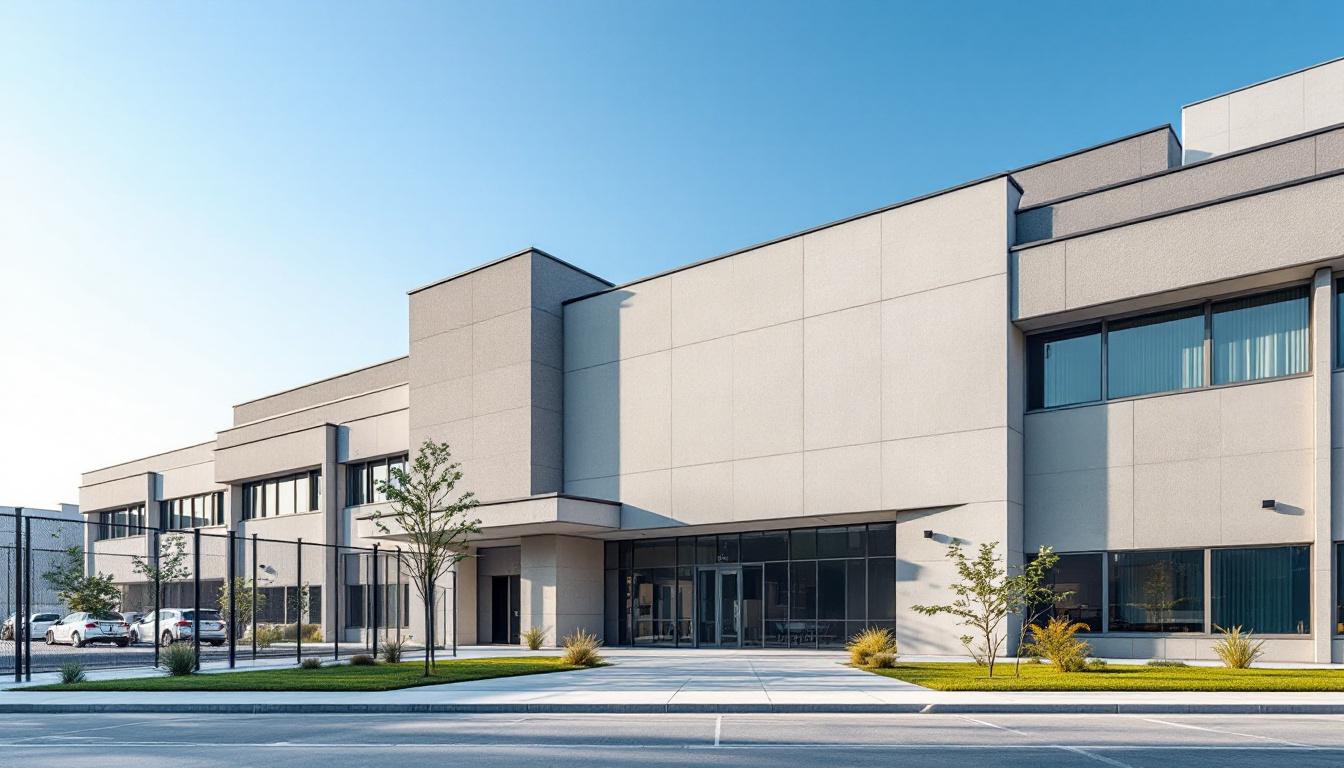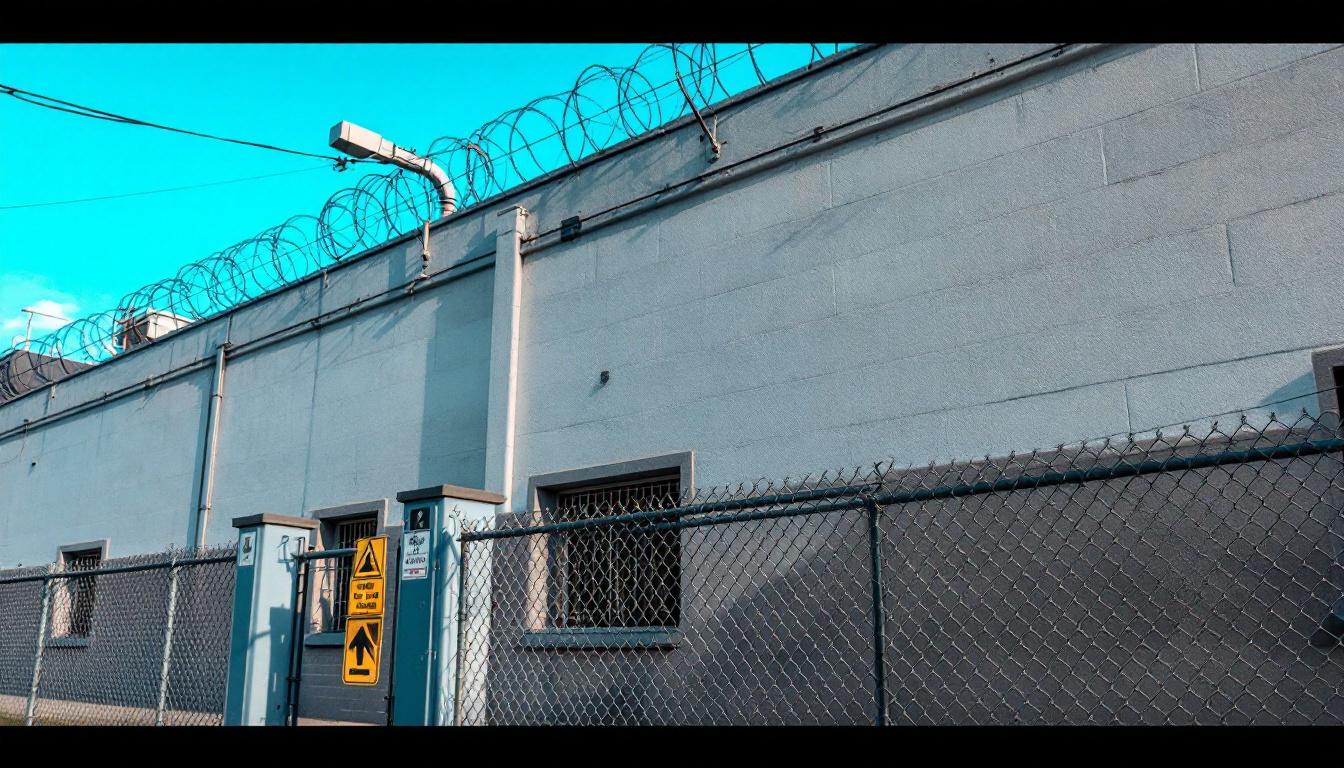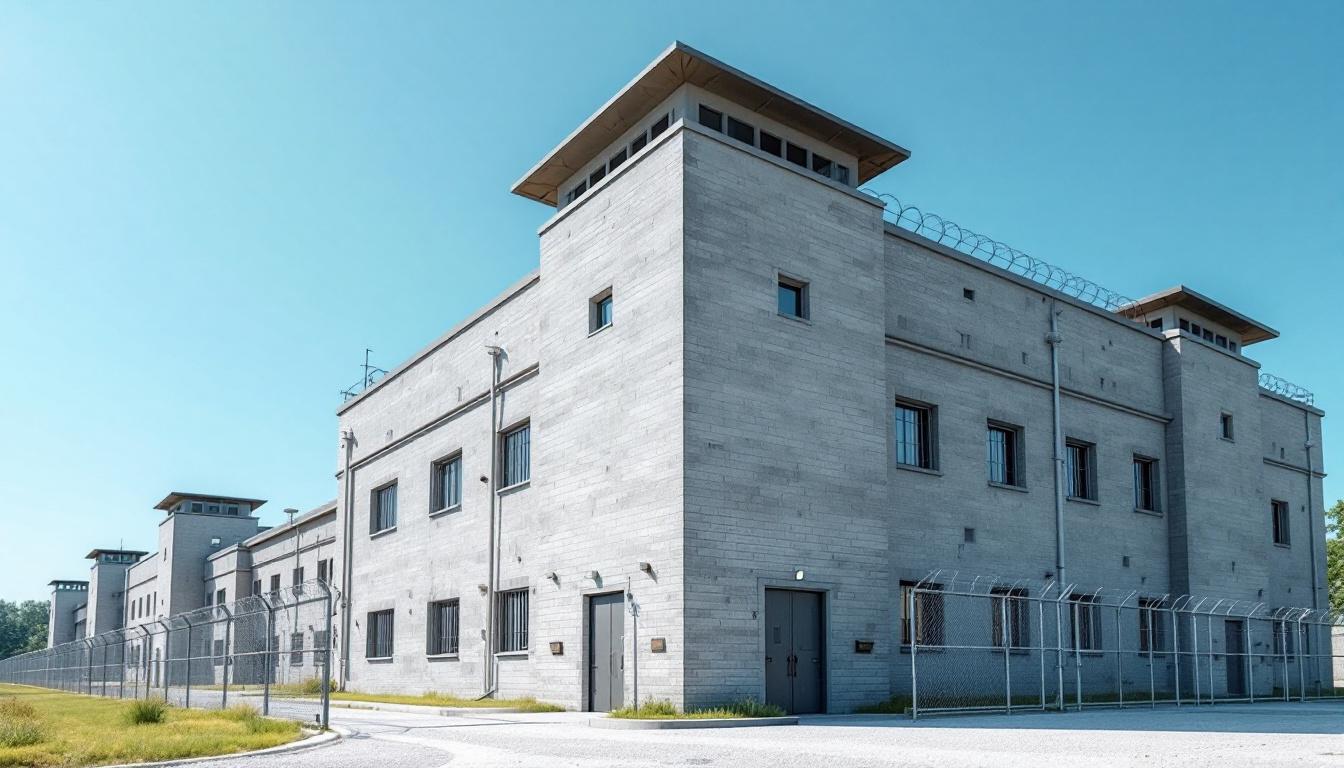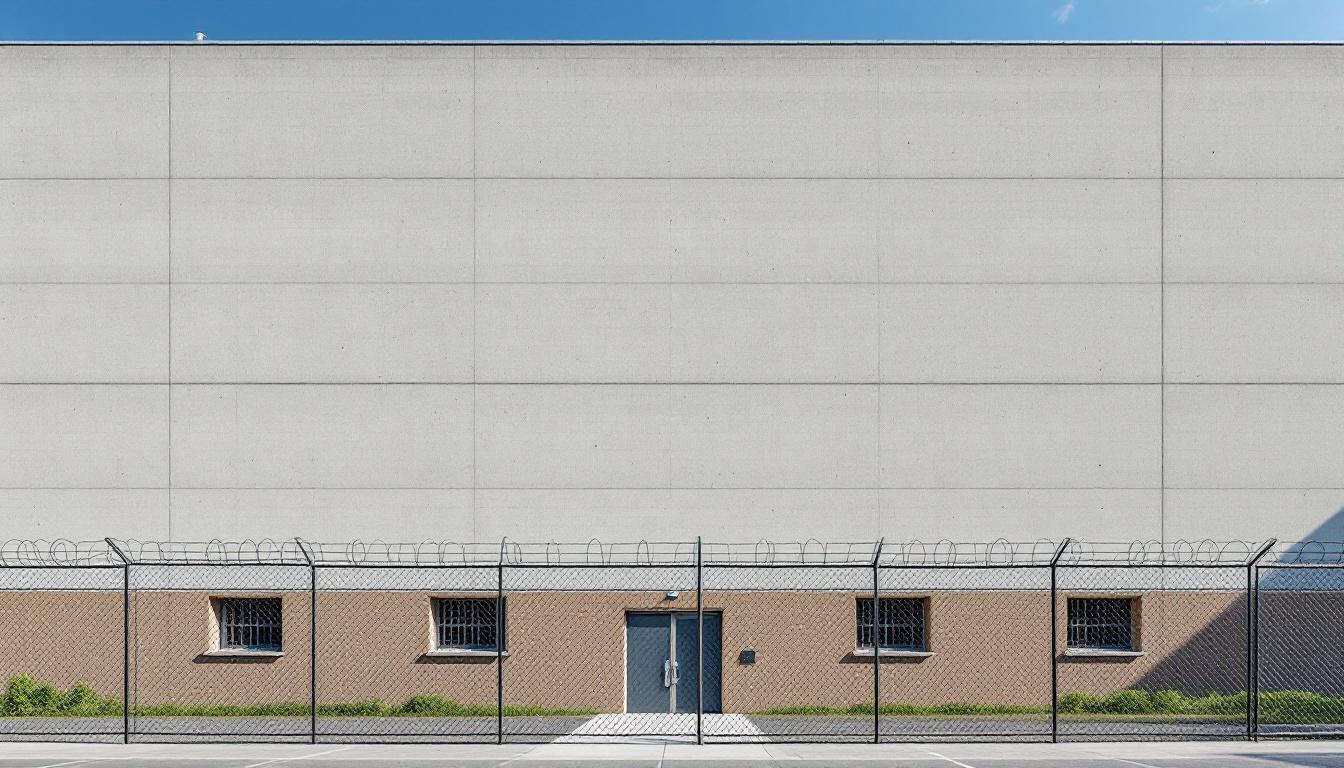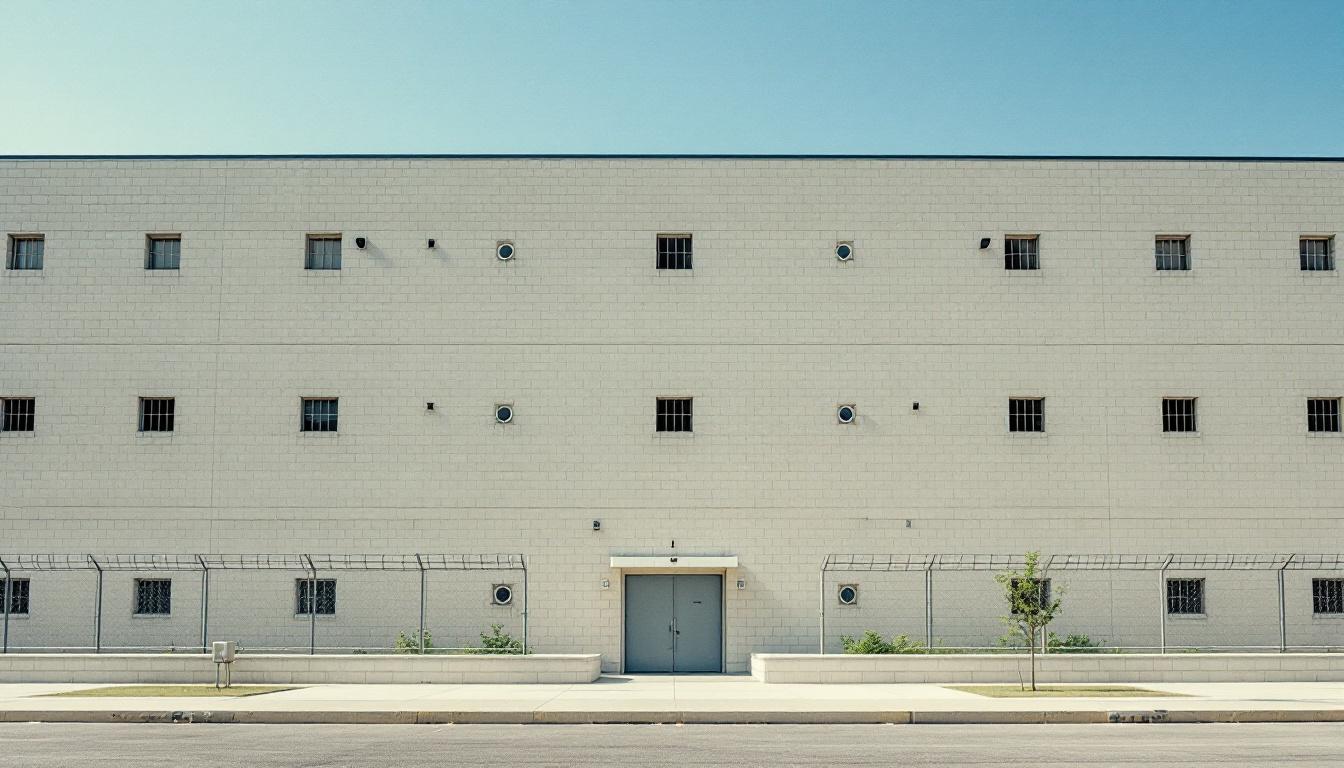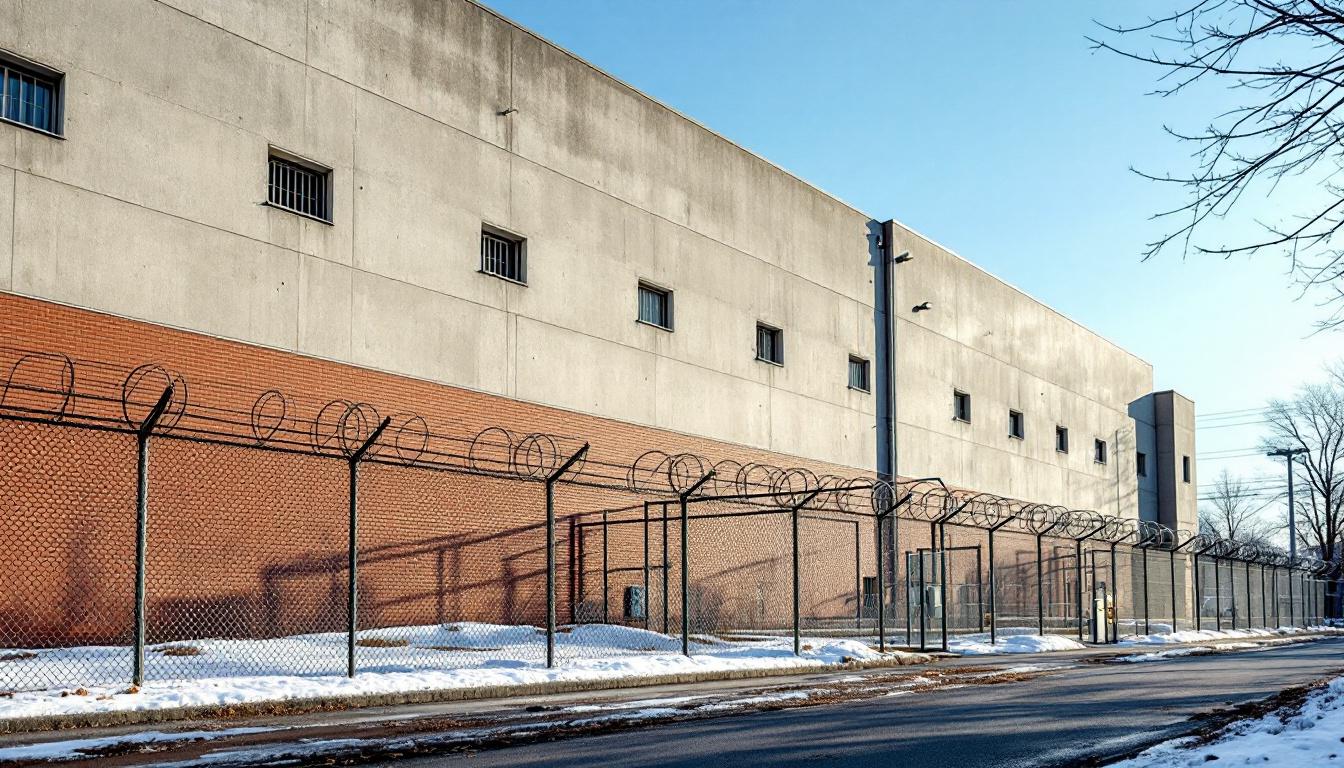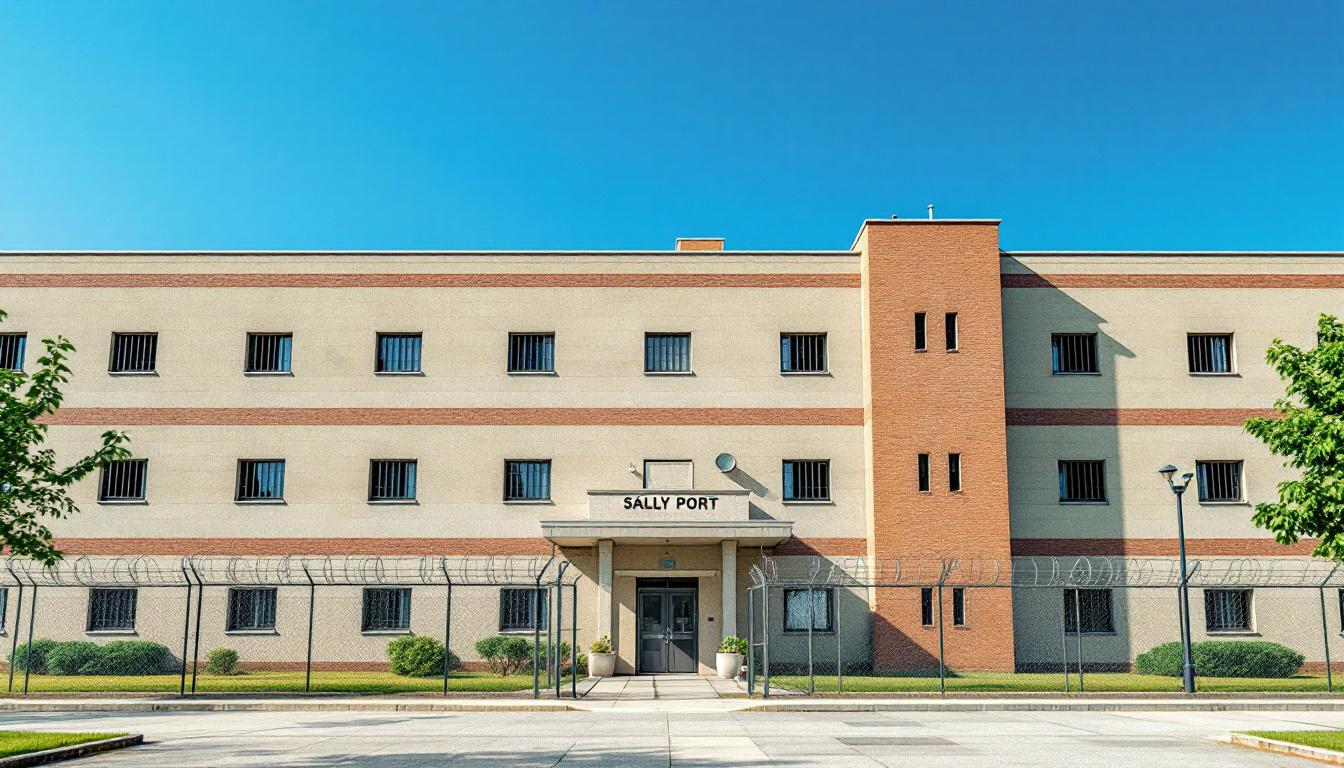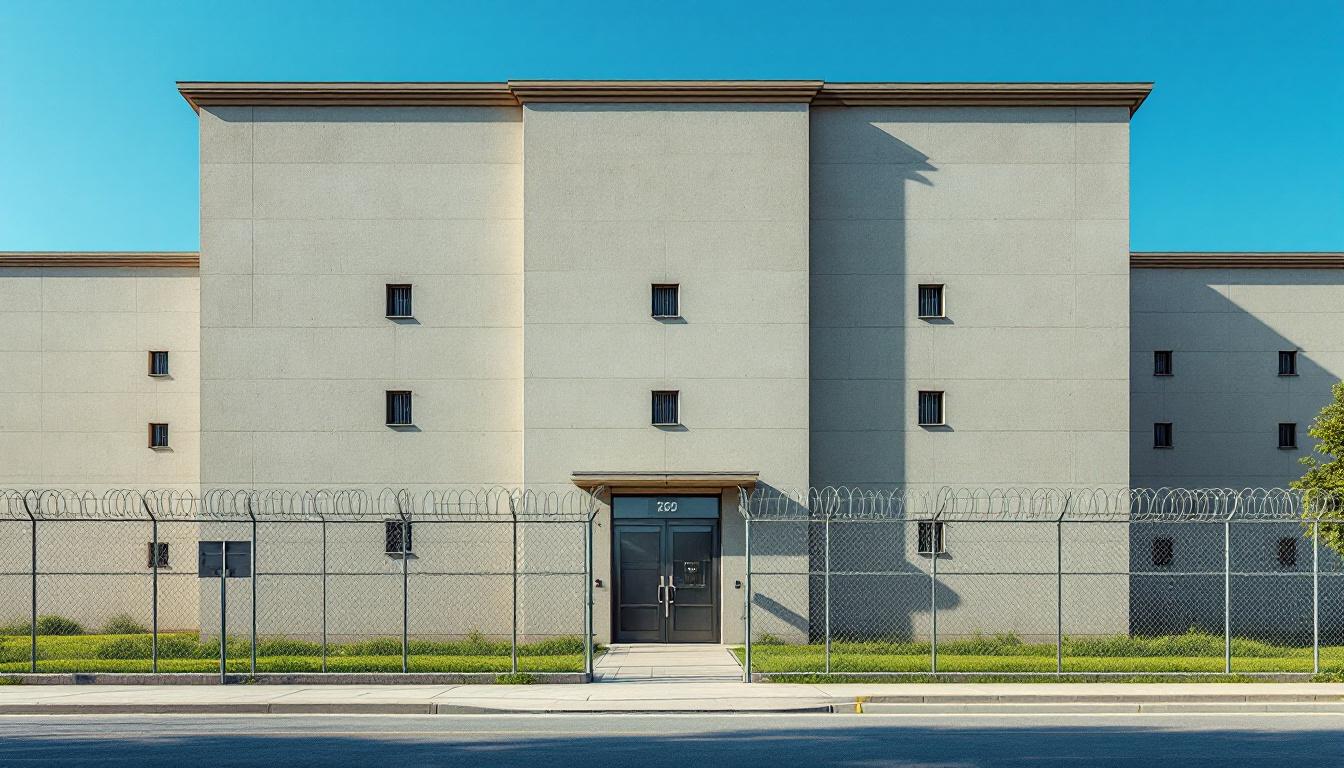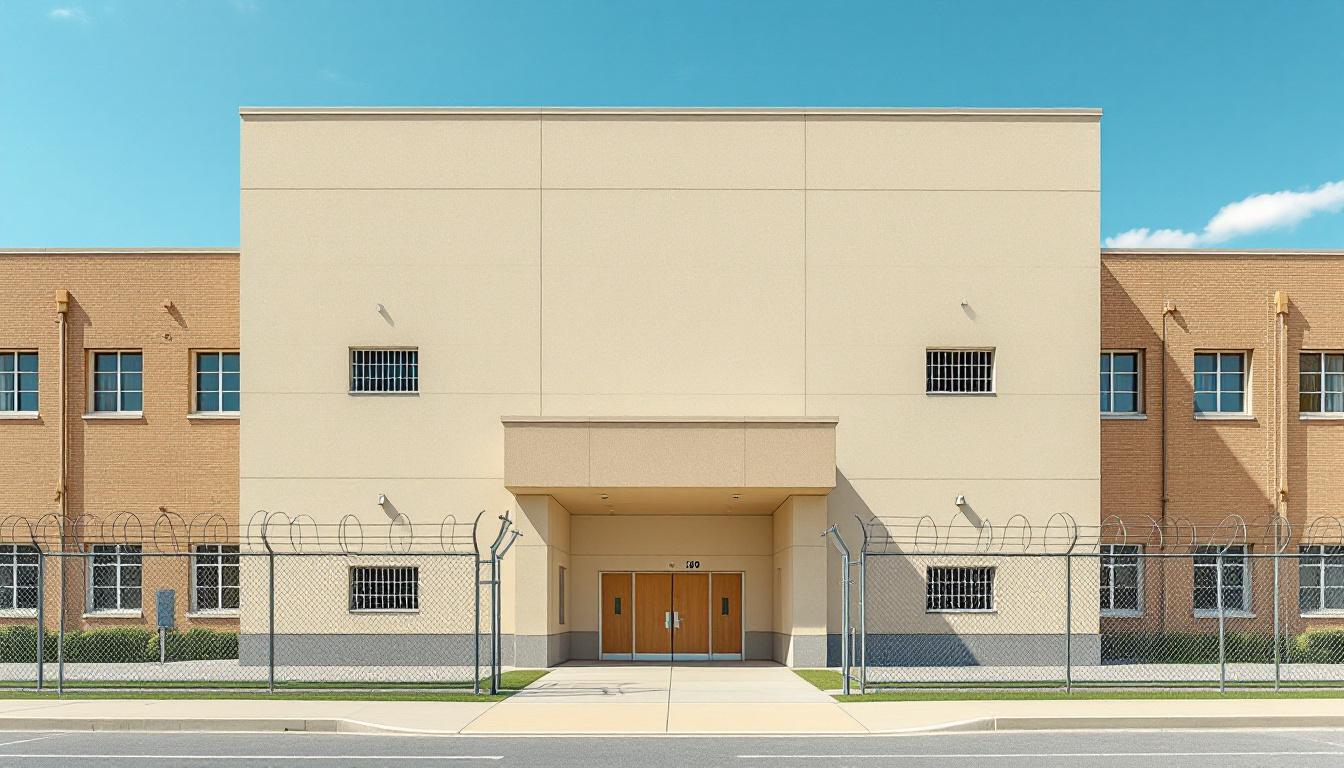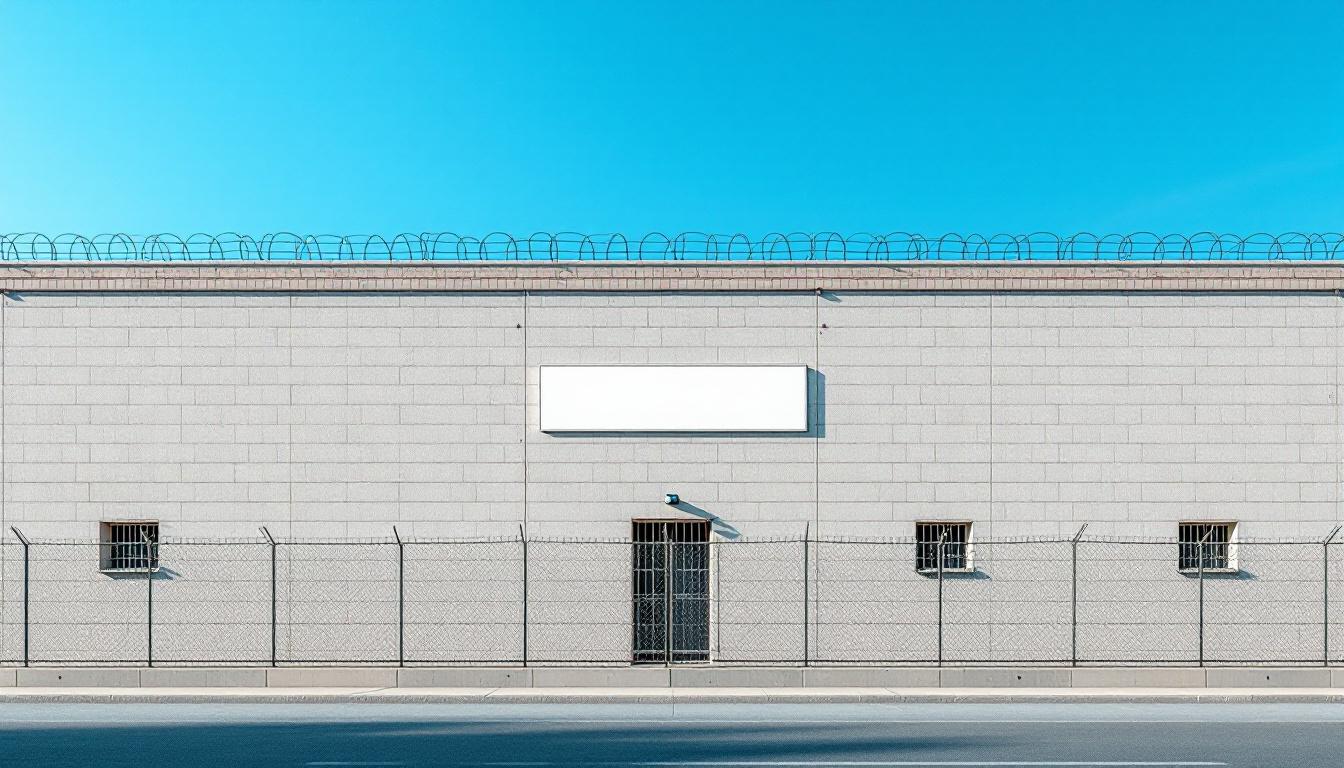
Quick Navigation
How to contact an inmate at Halifax Correctional Unit
This comprehensive guide will walk you through how to connect with an inmate at Halifax Correctional Unit. Follow the steps below to find an inmate and send letters and photos:
- Search for the inmate using our search tool below
- Create your account or log in to Penmate
- Write your message (up to 6,000 characters)
- Send instantly - inmates receive printed copies daily
Find an Inmate
Search for an inmate to start communicating today
Tip: You can search by first name, last name, or inmate ID number
To contact a person at Halifax Correctional Unit start by searching for the person on the official facility website. Perform a search by following these steps:
- Step 1: Enter their first name and last name into the search form and click "Search"
- Step 2: Locate their inmate record
- Step 3: Write down their Inmate ID and any housing information provided
Important! Be sure to enter the person's full name. Nicknames should not be used.
How to Send Messages to Inmates

You can use your phone or computer to send emails, letters, and photos to an inmate. Messages are sent electronically to inmate tablets or kiosks at the facility. If you would like to send a message, start by searching for an inmate at Halifax Correctional Unit.
Sending Photos and Postcards

A great way to send love and support to a loved one at Halifax Correctional Unit is to send photos and postcards. It only takes a few minutes to send photos from your phone and it makes a huge difference. You can also mail postcards with words of support and inspiration, or design your own postcard for special moments like birthdays and holidays.
Important! Be sure not to send any explicit photos or they may not be approved by the facility. You can also use a photo printing app like Penmate to make sure your photos are printed at the correct size (4x6 or 3x5) and are mailed according to the rules and regulations of Halifax Correctional Unit.
Frequently asked questions about Halifax Correctional Unit
-
How long does it take to deliver a message?
If you're sending an email message your letter is usually delivered within 24-48 hours. For messages sent via mail you should expect delivery within 3-7 days. All messages will need be approved by Halifax Correctional Unit.
-
How much does it cost to send a message to Halifax Correctional Unit?
You can send a message free using your phone or mail a message via USPS for the price of a $0.60 stamp and envelope. You can also purchase credits or e-stamps from services starting at $1.99.
-
What services can I use to contact an inmate at Halifax Correctional Unit?
Penmate
You can use Penmate to send letters and photos to an inmate from your phone. It's an easy way to stay in touch during your loved one's incarceration. Use the inmate locator to find an inmate's location and contact information, then you can send messages within a few minutes.
Securus messaging
Securus may be another option for communicating with an inmate at Halifax Correctional Unit. You can create a friends and family account and purchase credits to send messages. All messages will be reviewed and must be approved by the facility.
JPay
Some county jails and state prisons may support sending messages with JPay. You must register an account with the system, find your loved one, and purchase stamps to send messages. For some locations you can also attach photos.
Smart Jail Mail
You may also check if Smart Jail Mail is available at Halifax Correctional Unit. Smart Jail Mail is operated by Smart Communications and has contracted with some state and county jails. After purchasing credits, your messages and photos are sent to the facility, printed out, and then handed out to your loved one.
-
What is the mailing address of Halifax Correctional Unit?
Mailing address:
Halifax Correctional Unit
1200 Farm Rd
South Boston, VA 24592
Phone: (434) 572-2683Business hours:
- Monday: Open 24 hours
- Tuesday: Open 24 hours
- Wednesday: Open 24 hours
- Thursday: Open 24 hours
- Friday: Open 24 hours
- Saturday: Open 24 hours
- Sunday: Open 24 hours
-
What are the visiting hours at Halifax Correctional Unit?
Visiting hours at Halifax Correctional Unit vary by housing unit and security level. Generally, visits are scheduled on weekends and holidays, with some facilities offering weekday visits. Contact the facility directly at (434) 572-2683 or check their website for the current visiting schedule. Visits typically last 30-60 minutes and must be scheduled in advance.
-
What items are prohibited when sending mail to Halifax Correctional Unit?
Prohibited items typically include: cash, personal checks, stamps, stickers, glitter, glue, tape, staples, paperclips, polaroid photos, musical or blank greeting cards, hardcover books, magazines with staples, and any items containing metal or electronics. Only send letters on plain white paper with blue or black ink. Photos must be printed on regular photo paper (no Polaroids). Always check with Halifax Correctional Unit for their specific mail policies.
-
How do I send money to an inmate at Halifax Correctional Unit?
You can send money to an inmate at Halifax Correctional Unit through several methods: 1) Online using JPay, Access Corrections, or the facility's approved vendor, 2) Money orders mailed directly to the facility with the inmate's name and ID number, 3) Kiosks located in the facility lobby, or 4) Over the phone using a credit or debit card. Fees vary by method, typically ranging from $2.95 to $11.95 per transaction.
-
Can I schedule a video visit with an inmate at Halifax Correctional Unit?
Many facilities now offer video visitation as an alternative to in-person visits. At Halifax Correctional Unit, video visits may be available through services like Penmate, Securus Video Connect, GTL, or ICSolutions. Video visits typically cost $10-20 for 20-30 minutes and must be scheduled in advance. You'll need a computer or smartphone with a camera and reliable internet connection. Contact the facility for their specific video visitation policies and approved vendors.
-
What identification do I need to visit an inmate at Halifax Correctional Unit?
All visitors must present valid government-issued photo identification such as a driver's license, state ID, passport, or military ID. Minors must be accompanied by a parent or legal guardian who can provide the minor's birth certificate. Some facilities require visitors to be on the inmate's approved visitation list, which may require a background check. Contact Halifax Correctional Unit for specific ID requirements and visitor approval procedures.
-
How can I find out an inmate's release date?
To find an inmate's release date at Halifax Correctional Unit, you can: 1) Use the online inmate search tool if available, 2) Call the facility's records department, 3) Contact the inmate's case manager or counselor, or 4) Have the inmate provide this information during a call or visit. For privacy reasons, some facilities only release this information to immediate family members.
Facility Overview
Contact Information
Halifax Correctional Unit1200 Farm Rd
South Boston, VA 24592
Phone: (434) 572-2683
Official Website

About Halifax Correctional Unit
Within Halifax's rural landscape, the Halifax Correctional Unit, VA functions as a vital component of the state's broader correctional infrastructure, connecting incarcerated individuals to essential services while maintaining strong ties to the surrounding community. This VA correctional facility operates within Virginia's comprehensive corrections network, providing structured programming that typically emphasizes both security and rehabilitation for those in its care.
The facility generally offers inmates services that may include educational opportunities, vocational training programs, and mental health support designed to address individual needs during incarceration. Healthcare services, substance abuse counseling, and reentry preparation programs often form core elements of the institutional approach, with staff working to connect participants to community resources upon release. The correctional facility typically maintains partnerships with local organizations and state agencies to enhance program effectiveness and support successful transitions back into Halifax and surrounding communities.
As part of Virginia's regional corrections framework, Halifax Correctional Unit contributes to the state's overall public safety mission while serving residents from across the southern region. The facility's location in Halifax allows for family visitation and community connections that may prove beneficial for both incarcerated individuals and their loved ones, supporting the broader goal of reducing recidivism through maintained social bonds and comprehensive rehabilitation programming.
Programs & Services
Personal transformation through structured intervention forms the cornerstone of rehabilitative services at Halifax Correctional Unit, where comprehensive programming addresses the multifaceted needs of inmates seeking meaningful change. The facility's approach emphasizes skill development and behavioral modification through evidence-based methodologies that prepare participants for successful community reintegration. This holistic framework recognizes that sustainable rehabilitation requires addressing educational deficits, vocational limitations, and underlying behavioral patterns that may have contributed to criminal involvement.
Educational services typically encompass literacy improvement, GED preparation, and adult basic education designed to address fundamental academic gaps that often impede successful reentry. Moreover, vocational training opportunities may provide inmates with marketable skills in various trades and technical fields, enabling them to pursue stable employment upon release. These career-focused services often include hands-on instruction and certification preparation that aligns with regional employment demands, creating pathways to economic stability and reduced recidivism.
Support services frequently incorporate cognitive behavioral programs that address thinking patterns and decision-making processes through structured therapeutic interventions. Additionally, specialized training such as commercial driving (CDL) certification may offer inmates access to transportation industry opportunities, while building maintenance programs typically provide practical skills in facility operations and property management. These comprehensive support services work synergistically to address both immediate practical needs and long-term behavioral change, fostering personal accountability and community readiness among participants.
Daily Life & Visitation
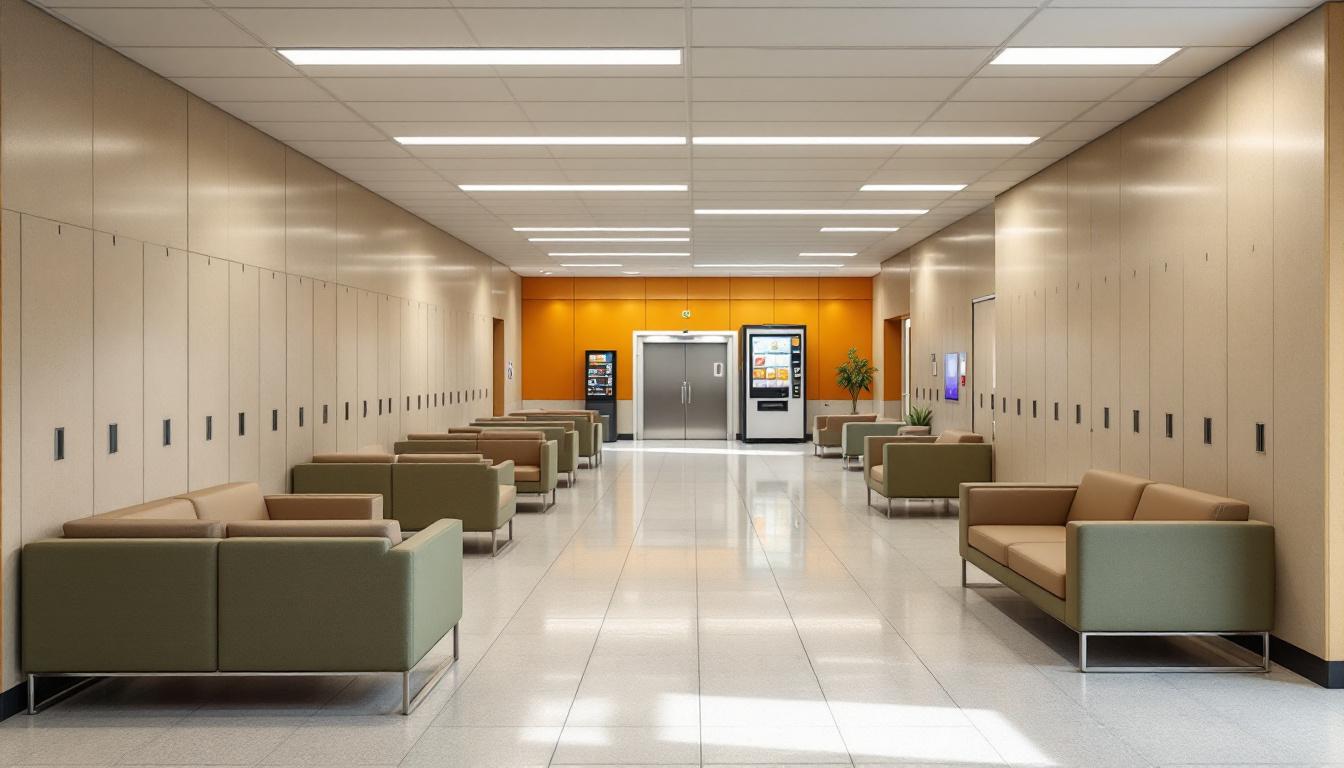
Behind the secure perimeter of Halifax Correctional Unit, the structured environment shapes every aspect of an inmate's waking hours through carefully orchestrated routines and institutional protocols. Today typically begins with early morning headcounts and meal service, followed by work assignments, educational programming, or recreational periods that provide consistent framework for daily activities. The facility generally maintains predictable schedules that help inmates adapt to institutional life while offering opportunities for personal development and skill-building throughout the day.
Living accommodations at the facility typically consist of dormitory-style housing units or individual cells, depending on security classification and available space. Inmates generally share common areas for dining, recreation, and programming activities, while personal living spaces may accommodate one or more residents with basic furnishings and limited personal property storage. The institutional environment requires significant adjustment as inmates learn to navigate shared facilities, institutional meal schedules, and the structured nature of correctional living arrangements.
Moreover, the facility often provides various programs designed to support rehabilitation and maintain family connections during incarceration. Work assignments may include kitchen duties, maintenance tasks, or facility operations that offer inmates productive ways to spend their time while developing job skills. Whereas recreational opportunities typically include outdoor exercise periods, television viewing, and library access, visitation policies generally allow scheduled contact with approved family members and friends. Communication options usually include monitored telephone calls and correspondence, helping inmates maintain important relationships while serving their sentences and preparing for eventual reintegration into the community.
Ready to Connect?
Start communicating with your loved one today
Search for an Inmate
